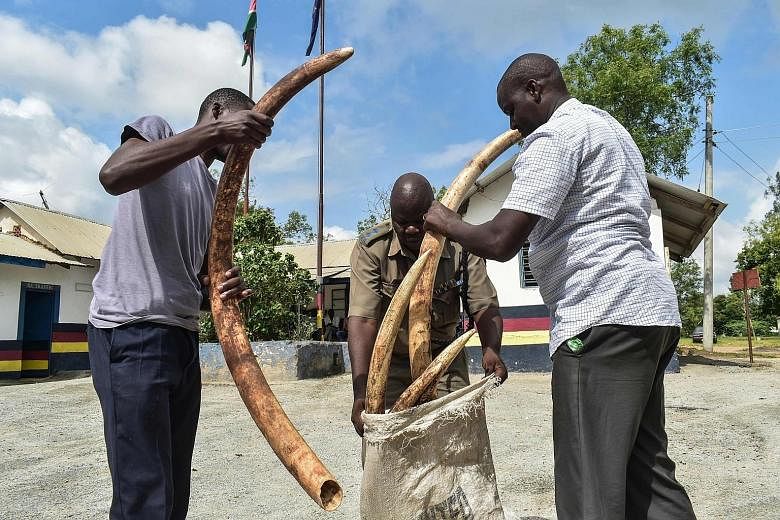There is no magic bullet to destroy the illegal wildlife trade. But experts in banking and finance can hurt the traffickers as lethally as any ranger.
A new frontier has been opened. Away from the African front lines, where each day, three rhinoceroses are slaughtered for their prized horns and 55 elephants are poached for their ivory, sleuths are looking at the digital footprints left by wildlife trafficking syndicates.
Already a subscriber? Log in
Read the full story and more at $9.90/month
Get exclusive reports and insights with more than 500 subscriber-only articles every month
ST One Digital
$9.90/month
No contract
ST app access on 1 mobile device
Unlock these benefits
All subscriber-only content on ST app and straitstimes.com
Easy access any time via ST app on 1 mobile device
E-paper with 2-week archive so you won't miss out on content that matters to you



